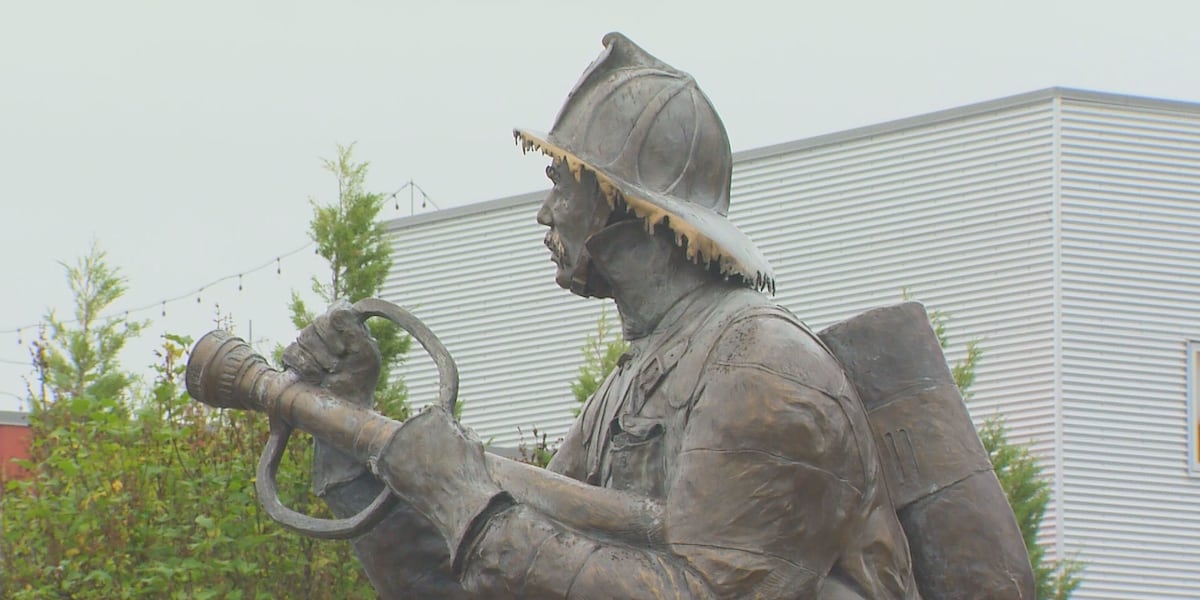Alaska
Former Alaska Advanced Nurse Practitioner Sentenced to 30 Years for Illegally Prescribing Millions of Opioids Causing Five Deaths

Anchorage, Alaska (KINY) – Former Advanced Nurse Practitioner Jessica Joyce Spayd (52) was sentenced in U.S. District Court yesterday to 30 years (360 months) imprisonment for illegally prescribing and dispensing opioids outside the scope of legitimate medical practice that resulted in the deaths of five people between 2014 and 2019. United States District Judge Joshua M. Kindred handed down the sentence.
A jury convicted Spayd on October 27, 2022, of 10 crimes including five counts of illegal drug distribution that resulted in death and one count of maintaining a drug involved premises. She was also ordered to forfeit $117,000 in unlawful proceeds.
The parties presented 51 witnesses during the four-week trial. Government witnesses included pharmacists who refused to fill prescriptions from Spayd, law enforcement agents and officers who investigated the deaths, Spayd’s employees, individuals who received pills from Spayd, medical experts, every Medical Examiner in Alaska (each of whom performed autopsies on different overdose victims), and family members of the victims.
Evidence presented during the trial showed that Spayd prescribed and dispensed 4.5 million dosages of opioids in just over five years including fentanyl, methadone, oxycodone, and hydromorphone. Many times she combined those prescriptions with prescriptions for dangerous other drugs like valium and muscle relaxers, known as the “holy trinity,” greatly increasing the chances of overdose death. She wrote these prescriptions with little to no medical justification or treatment plan; minimal, if any, tests or physical examinations; and little, if any, considerations of non-opioid treatment. Many of her patients were vulnerable and suffering from chronic pain, addiction, and mental illness, yet Spayd disregarded their medical histories, risk factors, past overdoses, symptoms, and pleas to reduce or taper their doses. She also ignored warnings from patients’ family members, pharmacists, and other medical providers, and defied thousands of warning letters sent by insurance companies about the dangers of her practices.
In imposing the sentence, Judge Kindred emphasized the trust that society places in medical practitioners like Spayd and remarked that “when [practitioners] fail in their responsibilities, [they] can do far greater harm than the drug dealer on the street corner.” He also acknowledged that Spayd “knew she was in effect killing people, and she just kept doing it,” for nearly two decades.
“This is the deadliest drug case in this district’s history. And disturbingly, the five deaths the Defendant was convicted of at trial are just the tip of the iceberg” because “Spayd may have caused or contributed to the deaths of dozens: 20 total confirmed drug overdoses and many others
suspected. She was a serial killer with a ‘poison pen,’” Assistant U.S. Attorney Ryan D. Tansey wrote in a sentencing memorandum filed with the court. “[H]er conduct was far more insidious” than that of a street level dealer “because she sanctioned (and supplied) lethal levels of drugs for
her patients, day after day, year after year, under the shroud of a prescribing license, assuring them that it was safe and necessary. In the process, she abused her authority and violated her oath as a medical professional, prescribing higher doses per patient than any other prescriber in Alaska during the charging period.”
“Medical practitioners who abuse their positions of trust by supplying millions of opioids for no legitimate medical purpose wreak havoc on our community,” said U.S. Attorney S. Lane Tucker. “Let this sentence send a clear message to any other medical practitioners considering similar
conduct in Alaska: our office and law enforcement partners will work tirelessly to investigate and prosecute these cases, and you will be punished severely.”
“Ms. Spayd betrayed the trust of her profession, those under her care, and her community by prescribing a staggering amount of opioids along with other powerful narcotics,” said Jacob D. Galvan, Acting Special Agent in Charge, DEA Seattle Field Division. “This lengthy sentence
emphasizes the seriousness of Ms. Spayd’s actions and should be seen as deterrent to those who aim to bring harm to our communities.”
“Spayd callously abused her dispensing authority, while fueling the opioid epidemic and poisoning our communities in the process,” said Special Agent in Charge Antony Jung of the FBI Anchorage Field Office. “This investigation and subsequent prosecution was about seeking justice for the
victims and their families, and holding Spayd accountable for her destructive and lethal crimes. With Spayd’s abuse linked to a significant loss of life, this sentence will undoubtedly have a direct public safety impact on our community.”
Assistant U.S. Attorneys Ryan Tansey and Michael Heyman prosecuted the case.
The Drug Enforcement Administration (DEA) and the Federal Bureau of Investigation (FBI) conducted the investigation leading to the charges in this case, with invaluable assistance from members of the North Slope Borough Police Department, the Alaska Health Care Fraud Task Force, the U.S. Department of Health and Human Services-Office of the Inspector General, Internal Revenue Service (IRS), U.S. Bureau of Land Management (BLM), Office of Law Enforcement and Security, Department of Natural Resources (DNR), Alaska State Parks Rangers, Alaska State Troopers, Anchorage Police Department, Alaska Medicaid Fraud Control Unit, and the State of Alaska Division of Insurance.

Alaska
Alaska baseball exhibit launches state’s participation in America250

Next year, cities and states across the nation will be honoring the American semiquincentennial, marking 250 years since the signing of the Declaration of Independence.
Each of the 50 states will have unique roles in the celebration and Alaska has already established a theme for its participation in America250: baseball.
State historian Katherine J. Ringsmuth and the Alaska Office of History and Archaeology have developed a traveling baseball exhibit, showcasing a uniquely Alaskan stitch in the American tapestry.
“Alaska’s Fields of Dreams: Baseball in America’s Far North” features nine panels — each representing an inning — that explore Alaska’s role in the national pastime.
From the Knock Down and Skin ‘Em club of St. Paul Island to the game’s expansion north to Nome and the formation of the Alaska Baseball League, the exhibit covers more than 150 years of baseball in Alaska.

Late last year, Gov. Mike Dunleavy signed Administrative Order 357, designating the Alaska Historical Commission as the state agency to coordinate with the national America250 organization and plan and coordinate events.
That put Ringsmuth and the commission, which is headed by Lt. Gov. Nancy Dahlstrom, into action to develop Alaska’s involvement.
And while some states will highlight their roles during early eras of America, Alaska has a relatively short history as part of the U.S. as the 49th state admitted. But as Alaska developed as an American territory even before statehood, baseball was a connection to the U.S.
“What we’re seeing by the 1910s, 1920s with the establishment of places like Anchorage, you see these places turning into real American towns,” Ringsmuth said. “And baseball is part of that agent that’s carrying those values.”

Alaska’s history with baseball is diverse both geographically and in the makeup of its participants.
The exhibit documents the history of Alaska Native baseball and details games in Goodnews Bay in Western Alaska and in Nome, where miners used burlap bags as bases to play on the tundra. It also covers Alaska women who play the game, the arrival of Negro League’s great Satchel Paige in Alaska in 1965, and Midnight Sun games.
The theme for Alaska’s involvement in the America250 is “History for Tomorrow,” and Ringsmuth said that look to the future is a nod at younger populations.
“I thought, let’s do something that makes our young people filled with optimism and (shows) that they can dream for tomorrow, and this can be the promise of tomorrow,” she said. “And I thought sports was a fantastic way to do that.”
The exhibit was shown at a number of places throughout the state over the summer. On Wednesday, the display will be at the Bear Tooth Theatrepub as part of the AK Sports Shorts storytelling event.
One of the seven speakers is Olga Zacharof of St. Paul, who will talk about the Knock Down and Skin ‘Em club, considered Alaska’s first baseball team.
Ringsmuth and Lorraine Henry with the Alaska Department of Natural Resources will also be on hand to talk to attendees about America250-Alaska during the intermission.
The event starts at 6 p.m. and tickets are $20. A portion of the proceeds goes to the Healthy Futures Game Changer program, which “provides small grants to youth from low income families to remove barriers to participation in sports and recreation such as equipment, fees, and transportation costs,” according to its website.

Ringsmuth said the exhibit is a device to get people to learn about the history of baseball in Alaska and an entry into other America250-Alaska events and activities.
The state has big plans for the Week of Dreams — a weeklong tribute to the nation’s pastime culminating on July 4, 2026.
Plans for the week include youth games, legacy softball and Indigenous baseball games and celebrating the addition of Growden Memorial Ballpark in Fairbanks to the National Register of Historic Places.
It will also highlight the Knock Down and Skin ‘Em club, which was founded in 1868.
With the help of Anchorage coach and former pro player Jamar Hill, Ringsmuth connected with the Major League Baseball commissioner’s office, and the event will bring up former MLB players who are also ABL alumni for the Week of Dreams events.
Even active MLB players like Aaron Judge, who was a former star for the Anchorage Glacier Pilots, could be involved via remote methods.
“Our office is talking about doing a story map we can (post) online,” Ringsmuth said. “You know, call us and we’ll record you. What’s your story of playing in Alaska? What’s your favorite memory?”
“We can still engage the players who are going to be a bit busy next summer.”
Alaska
Bartlett pulls out 3OT thriller, Dimond rides the storm: Alaska high school Week 5 roundup

ANCHORAGE, Alaska (KTUU) – As the playoffs inch closer, each successive week of high school action carries more seeding implications and general importance – and one could tell as much from watching the slate of games this weekend.
Every team in the state was active this week except Seward in 9-man, giving plenty of opportunities for statement performances at every level.
Bartlett 12 – Service 6 (3OT)
Service played host to Bartlett looking to extend its record to 5-0, but couldn’t survive a chaotic, back-and-forth game that featured 12 combined turnovers and defensive dominance on both sides.
Golden Bears standout Deuce Alailefaleula notched a first-quarter interception and fell on an errant Service snap to tie the game at 6 late in regulation. After two overtime frames with no scoring, Bartlett back Colt Jardine plunged in for the walk-off touchdown on the first play of triple-OT.
Dimond 25 – Colony 22
The Dimond Lynx invaded a wet and wild Pride Field to take on Colony, and weathered the storm by scoring 19 unanswered points to eke out their first win of the season.
Colony fans huddled underneath tents and umbrellas watched in horror as Dimond surged ahead on a late touchdown strike, before the Knights’ last-gasp drive ended in a sack.
Eagle River 14 – Palmer 31
Though it was a much tighter contest most of the way than the final score would indicate, Palmer’s high-powered offense continued to produce in a similarly rainy matchup with Eagle River.
Twenty-four unanswered Moose points helped Palmer extend its winning streak to four, and secured its first 4-1 start since 2013.
WEEK 5 HIGH SCHOOL FOOTBALL SCORES


See a spelling or grammar error? Report it to web@ktuu.com
Copyright 2025 KTUU. All rights reserved.
Alaska
UPDATE: 911 outage continues in Anchorage

ANCHORAGE, Alaska (KTUU) – The Anchorage Police Department said an outage continues to impact the Anchorage 911 system.
It continues to encourage people in Anchorage who need to use the service to dial 3-1-1 and select option one, or call (907) 786-8900 to connect with police.
ORIGINAL: Anchorage is experiencing a 911 and voice service outage, Alaska Communications told Alaska’s News Source Friday evening.
Alaska Communications spokesperson Heather Cavanaugh said disruption involves home and business landline service as well as 911 calls in Anchorage.
Technicians are working to restore service, but there is no estimated time for when it will be back online, Cavanaugh said. The cause has not been identified, though crews are investigating the source.
“Technicians are still on site working to restore service as quickly as possible,” Cavanaugh said at about 9:40 p.m. Friday night.
Police urged residents to use alternative numbers to reach emergency dispatchers while the outage continues. Anchorage residents can dial 3-1-1 and select option one, or call (907) 786-8900 to connect with police.
Anchorage police first reported a statewide outage late Friday afternoon. Alaska Communications confirmed this evening that the issue is limited to the greater Anchorage area.
See a spelling or grammar error? Report it to web@ktuu.com
Copyright 2025 KTUU. All rights reserved.
-

 Finance1 week ago
Finance1 week agoReimagining Finance: Derek Kudsee on Coda’s AI-Powered Future
-

 World1 week ago
World1 week agoSyria’s new president takes center stage at UNGA as concerns linger over terrorist past
-

 Technology1 week ago
Technology1 week agoThese earbuds include a tiny wired microphone you can hold
-
North Dakota1 week ago
Board approves Brent Sanford as new ‘commissioner’ of North Dakota University System
-

 Culture1 week ago
Culture1 week agoTest Your Memory of These Classic Books for Young Readers
-

 Crypto1 week ago
Crypto1 week agoTexas brothers charged in cryptocurrency kidnapping, robbery in MN
-

 Crypto1 week ago
Crypto1 week agoEU Enforcers Arrest 5 Over €100M Cryptocurrency Scam – Law360
-

 Rhode Island1 week ago
Rhode Island1 week agoThe Ocean State’s Bond With Robert Redford



















